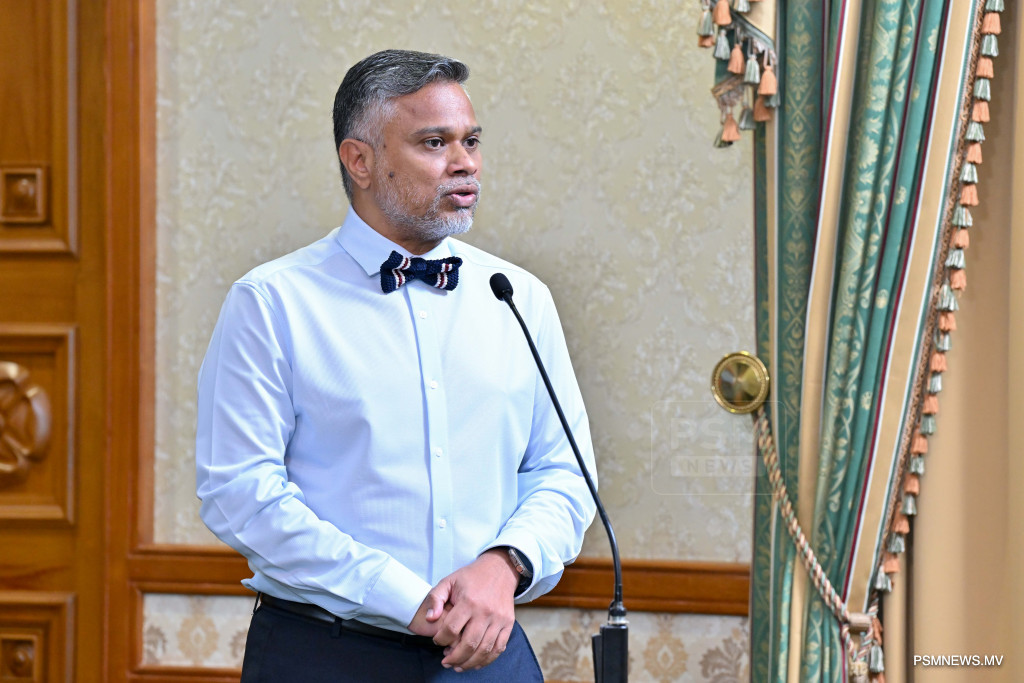
The Prosecutor General’s (PG) Office has already initiated efforts to draft the required regulations to complement the Prevention of Gang and Other Serious Offences Act ratified on Sunday, the Prosecutor General (PG) Abbas Shareef has said.
Speaking to reporters after President Dr Mohamed Muizzu ratified the Prevention of Gang and Other Serious Offences Act, Abbas said his office was already drafting the required regulations mandated under the new law, which he said will be followed by relevant training.
"Since we received the draft bill, we have been getting ready to enforce the law within three months when it comes into effect. The drafting of the regulations to be made by this office is already underway. And we have commenced the training programmes for our staff which will also include the Police,” he explained.
The Chief Prosecutor said his office is also organising forums to provide information and raise public awareness about the new law.
The new statute formally defines offences related to gang activity and organised crime, introducing strict penalties while significantly broadening law enforcement authority. It establishes monitoring mechanisms for high-risk individuals and includes provisions to prevent the recruitment of minors into criminal organisations. Structuring its approach around prevention and enforcement, the law aims to dismantle entrenched networks and disrupt their operations.
Under its provisions, law enforcement agencies are tasked with identifying gangs and individuals affiliated with them, a step intended to weaken criminal networks and limit their ability to operate. The legislation also authorises the seizure of illicit assets linked to organised crime, criminalising financial support for such groups.
Law enforcement agencies have been granted expanded powers to conduct controlled deliveries and covert operations aimed at dismantling organised crime syndicates. The law explicitly criminalises recruitment into organised crime, with stiff penalties for those responsible.
The new framework grants extensive authority to enforcement agencies, particularly the Maldives Police Service (MPS). Courts may declare wealth unlawfully acquired if individuals linked to organised crime cannot verify its legitimacy, allowing the state to seize such assets.
Police will also have the power to stop, search, and arrest individuals suspected of organised criminal activity, weapons manufacturing, or illegal imports, without requiring prior judicial authorisation. The law further establishes protective measures for individuals vulnerable to gang environments, including electronic tagging through a MoniCon Order, as part of broader supervision and rehabilitation efforts.
